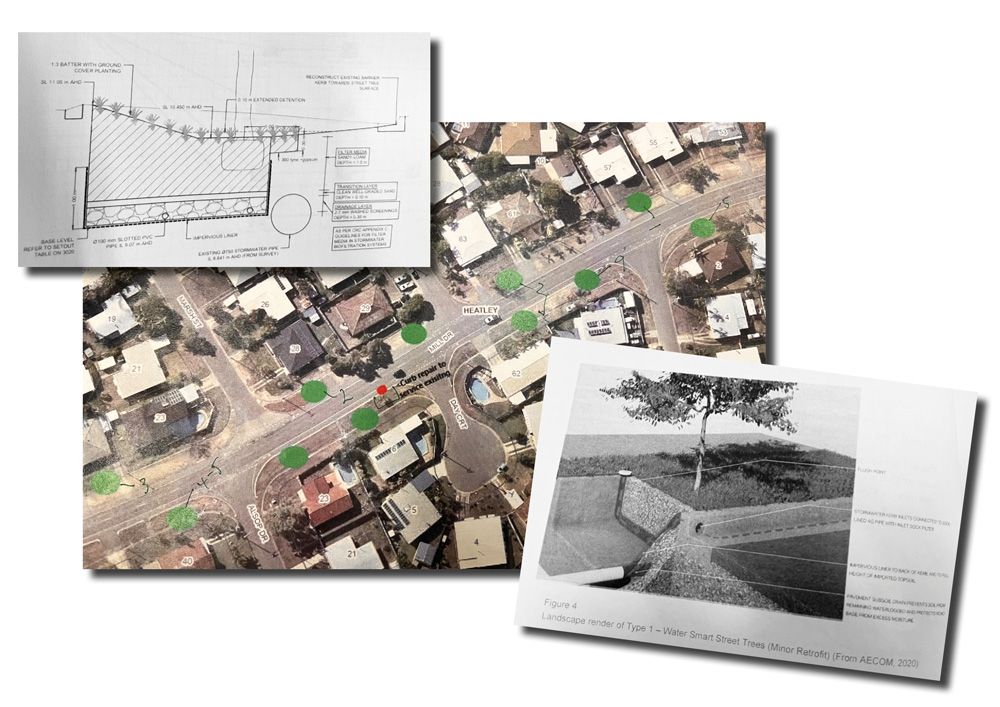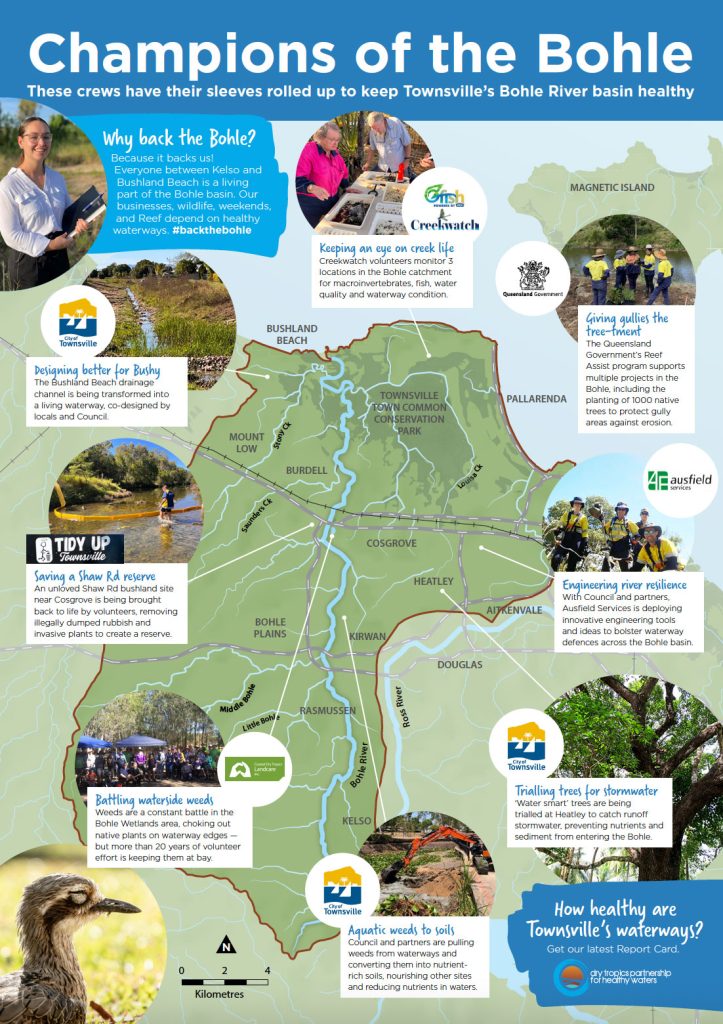Take a drive down Heatley’s Mill Drive to meet 11 special trees — each being used as a test case to reveal the best species and tree-pit designs for catching and cleaning urban runoff.
The 11 candidates are equipped with soil moisture sensors and are periodically tested by Townsville City Council in both wet and dry season conditions.
The ‘Water Smart Trees’ project is being delivered by Townsville City Council with support from the Queensland Government’s Reef Water Quality Program and is a trial to help inform further development of the Bohle River Catchment Offsets Roadmap.
“The structures will capture stormwater which would ordinarily run-down drains and into the Bohle River to instead irrigate the trees,” says Community Health, Safety and Environmental Sustainability Committee chairperson Maurie Soars.
“This passive irrigation method removes the need for long-term potable water use, meaning we can use any available runoff and help filter it to improve water quality flowing to the Great Barrier Reef.”
What is passive irrigation?
The innovative use of trees to treat and manage storm and urban water, while also beautifying streetscapes and cooling urban areas, has become common practice in many other parts of Australia and the world, but until now, has seen limited application in the Dry Tropics.
The approach is called ‘passive irrigation’ because it uses gravity to move water to where it is needed. The technique is one way that Townsville City Council is implementing Water Sensitive Urban Design (WSUD) — a trend in sustainable development that is gaining global traction.

“Stormwater runoff contains nutrients and sediment which negatively impacts waterways, as well as the corals and seagrass in our in-shore reef areas,” Soars says.
“In the long run, learning to invest in this type of green infrastructure and apply innovative solutions can directly offset the need to upgrade water treatment solutions and meet other key environmental outcomes for our city streets and improve livability of our neighbourhoods.”
Cr Soars said the trial would run for at least 12 months and Council officers would use the data to decide whether the irrigation methods could be used in the future.
“We are embracing our dry tropical identity,” Soars says. “I’m looking forward to how this innovation can further Townsville as a water sensitive city.”
Learn more about the trees project here.
We’re celebrating Champions of the Bohle
Healthy waterways are essential to our region, supporting life, tourism, agriculture, and recreation — and they have critical flow-on effects on marine ecosystems and the Great Barrier Reef. See the Bohle basin water quality results in our latest Waterways Report Card, and find out how you can help #BackTheBohle.



